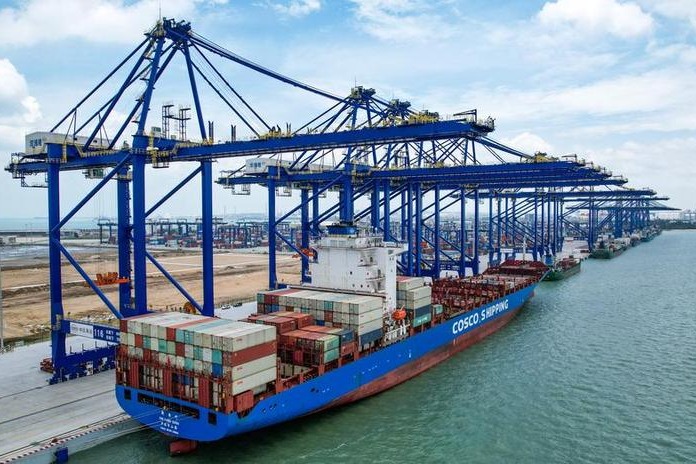US chickens come home to roost: China Daily editorial


US President Joe Biden issued a declaration of emergency and authorization for the temporary duty-free importation of solar cells and modules from Southeast Asia on Monday to ensure that the United States can meet its demand for electricity.
In a statement on Monday, Secretary of Commerce Gina Raimondo claimed that importing solar panels is necessary to help ensure the country can generate enough electricity to meet its demand.
Biden's authorization means that the antidumping and countervailing duties imposed on imports of solar cells and modules from Southeast Asia — despite their use of parts made in China — will be waived for 24 months.
In a statement released on Monday, Commerce Department officials clarified that the department will continue the ongoing circumvention inquiries and that whatever conclusion the department reaches when the circumvention investigation concludes will apply once this short-term emergency period is over. In accordance with the president's declaration, no solar cells or modules imported from Cambodia, Malaysia, Thailand, and Vietnam will be subject to new antidumping or countervailing duties during the period of the emergency. Existing duties on Chinese imports of solar cells and modules remain in effect.
The high tariffs imposed on imports of solar cells and modules mean the US has been unable to import them in sufficient quantities to expand its solar power generating capacity. As the White House said in announcing the move, the acute shortage of solar modules and module components means that across the country, solar projects are being postponed or canceled. Roughly half of the domestic use of solar modules that had been anticipated over the next year is currently in jeopardy as a result of insufficient supply.
Yet while allowing imports of solar cells and modules from Southeast Asia might address near-term electricity reliability concerns, it will be far from enough to resolve the country's self-made energy crisis.
In short, the high tariffs on imports mean the US is unable to import solar modules in sufficient quantities to ensure the solar capacity additions necessary to achieve US climate and clean energy goals and ensure electricity grid resource adequacy.
Meanwhile, the only reason that seems to prevent the Biden administration from lifting the tariffs on imports from China — a move that has been mooted for months as the exorbitant tariffs have been widely recognized to be self-harming — is its fear of doing so ahead of the midterm elections.
Indeed, Biden can blame the energy crisis and inflation on Russia and extreme weather conditions, even China as its predecessor did. But it cannot cover up the truth, as shown by the series of U-turns it has had to take, that it is the mismatch between the ends and the means of its domestic and foreign policies that has made the bed it lies in today.


































